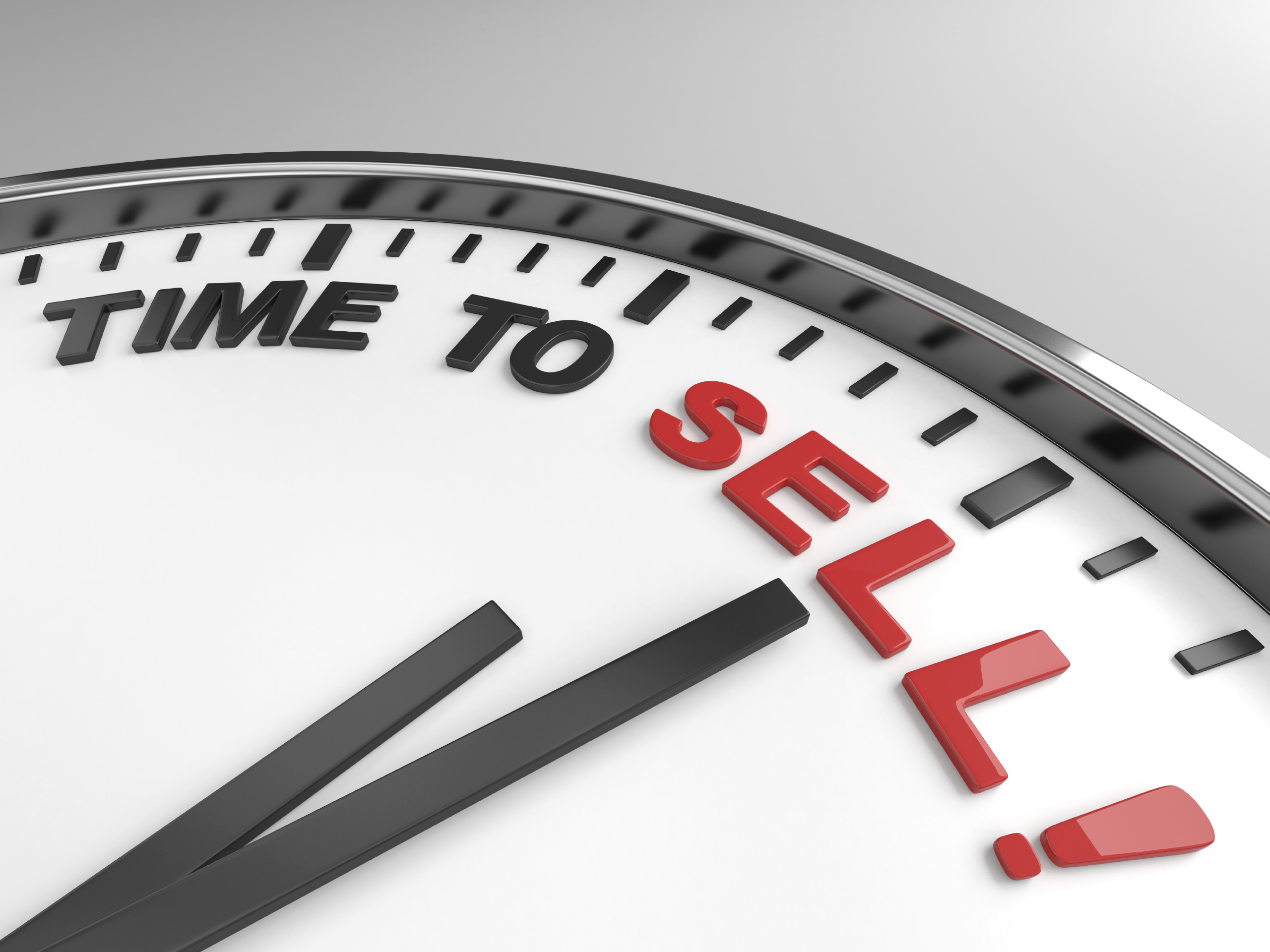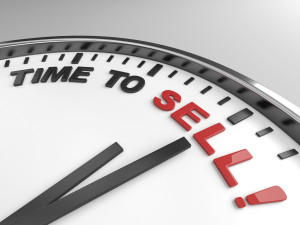
What Makes the Sale of a Business Fall Through?

There are a myriad of reasons why the sale of a business doesn’t close successfully; these multiple causes can, however, be broken down into four categories: those caused by the seller, those caused by the buyer, those that just happen (“acts of fate”), and those caused by third parties. The following examines the part each of these components can play in contributing to the wrecked deal:
The Seller
1. In some instances, the seller doesn’t have a valid reason for entering into the sale process. Without a strong reason for selling, he or she has neither the willingness to negotiate nor the flexibility to see the sale to a conclusion. Without such a commitment, the desire to sell is not powerful enough to overcome the many complexities necessary to finalize the sales process.
2. Some sellers are merely testing the waters. As detailed above, they are not at that “hungry” stage that provides the push toward a successful transaction. These sellers merely want to see if anyone wants to buy their business at the price they would like to receive.
3. Many sellers are unrealistic about the price they want for their business. They may be sincere about wanting to sell, but they are unable to be realistic about how the marketplace will value the business. The demand for their business may not be there.
4. Some sellers fail to be honest about their business or its situation. They may be hiding the fact that new competition is entering the market, that the business has serious problems or some other reason the business is not salable under existing circumstances. Even worse, some sellers do not disclose that there is more than one owner and that they are not all in agreement about selling the business.
5. A seller may decide to wait until a buyer is found and then check with their outside advisors about the tax and/or legal consequences. At this point, the terms of the deal have to be altered, and the buyer won’t agree. Sellers should deal with these complications ahead of time. Nobody likes changes–especially buyers!
The Buyer
1. The buyer may not have an urgent need or a strong desire to go into business. In many cases the buyer may begin with positive intentions, but then doesn’t have the courage to make “the leap of faith” necessary to go through with the sale.
2 Some buyers, like sellers, have very unrealistic expectations regarding the price of businesses. They are also uneducated about the nature of small business in general.
3. Many buyers are not willing to put in the hours or do the type of work necessary to operate a business successfully.
4. Buyers can be influenced by others who are opposed to the purchase of a business. Many people don’t or can’t understand the need to be “your own boss.”
Acts of Fate
These are the situations that “just happen,” causing deals to fall through. Even considering the strong hand of fate, many of these situations could have been prevented.
1. A buyer’s investigation reveals some unmentioned or unknown problem, such as an environmental situation. Or, perhaps there are financial deficiencies discovered by the buyer. Unfortunately, these should have been on the table from the beginning of the selling process.
2. The seller may not be able to substantiate, at least to the buyer’s satisfaction, the earnings of the business.
3. Problems may arise, unknown to both the seller and the buyer, with federal, state, or local governmental agencies.
Third Parties
1. Landlords may become difficult about transferring the lease or granting a new one.
2. Buyers and/or sellers may receive overly-aggressive advice from outside advisors, usually attorneys. Attorneys, in their zeal to represent their clients, forget that the goal is to put the deal together. In some cases, they erect so many roadblocks that the deal can only fall apart.
Most of the problems outlined here could have been resolved before the selling process was too far advanced. There are also some problems that could not have been avoided–people do sometimes enter situations with the best of intentions only to find out that this is not the right answer for them after all. These are the exceptions, however. Most business sales can have happy endings if potential difficulties are handled at the appropriate time.
Business brokers are aware of the various ways a deal may fall through. They are experienced in resolving issues before the business goes onto the market or before a buyer is introduced to the business. To buy or sell a business successfully, sellers should resolve any potential deal-wreckers, following the advice of a professional business broker.
Although business brokers cannot provide legal advice, they are familiar with the intricacies of the business sale. They are also familiar with local attorneys who specialize in the details of these transactions. These attorneys will usually be more efficient, and therefore more cost-effective, than the attorney who handles a general practice.

When It’s Time to Sell, Put Your Strengths First

Putting your strengths first will help you sell your business. While this may seem obvious, a surprising number of business owners will either improperly index the strengths of their business or fail to emphasize those strengths adequately. In this article, we will examine five key business strengths that you should focus on when it comes time to sell.
Understand Your Buyer
You know your business, but you don’t necessarily know what buyer is best for it in the long run. If you’ve never sold a business before (and most business owners haven’t), then you may not know how to best position and present your business for sale.
A business broker is immensely valuable in this regard. These professionals are very good at determining which prospective buyers are serious and which ones are not. Additionally, a business broker will use their own databases of prospective and vetted buyers and try to match your business up with the prospective buyers that are most likely to be a good fit. When dealing with a buyer, a seasoned business broker will put emphasis on your strengths whenever possible.
Be Sure to Maintain Normal Operations
Selling a business can be very demanding and underscores, once again, the value of working with a business broker. A business broker will focus on selling your business so that you have more time to focus on the day-to-day of running your business.
The last thing you want is to waste your time on buyers who are not serious. Remember, if your business suffers as a result of the time you spend away from your business in the sale process, then the value of your business to prospective buyers could suffer.
Determining the Best Price
If you incorrectly price your business, you could dramatically reduce the interest. Business brokers are experts at pricing businesses and can help you determine the best possible price. Many business owners have unrealistic valuations and others may even undervalue their businesses or they fail to incorporate all aspects of their business. Working with a professional business broker can help you quickly achieve the best price. The best price possible will work to maximize the strengths of your business.
Getting Your Business Ready for Sale
There is a lot that goes into getting your business ready to sell. The simple fact is that getting your business ready to sell isn’t a one-dimensional process, but instead involves every aspect of your business. Getting your business ready to sell isn’t about making it look presentable and putting a “new coat of paint” on things, although this is a factor.
Instead it is necessary to have every aspect of your business in order. From paperwork such as tax returns, contracts and forms to a business plan and more, it is important to consider every aspect of your business. You should consider what you would want to see if you were the one looking to buy the business. Be sure to do everything possible to build up your strengths.
Confidentiality
If word gets out that your business is up for sale, there could be a range of problems. Employees, including key management, could begin looking for other jobs and suppliers and key buyers could begin to look elsewhere. In short, a breach of confidentiality could lead to chaos.
Getting your business ready for sale means factoring in the strengths and weakness of your business then fixing weaknesses whenever possible and building upon your strengths. Working with a business broker can help you address every point covered in this article and more.

Evaluating Your Company’s Weaknesses

The time you spend evaluating your company’s weaknesses is, as it turns out, one of the single best investments you can hope to make. No one should understand your company better than you. But to fully understand your company, it is essential that you invest the time to understand your company’s various strengths and weakness.
Your company, from the beginning, has been an investment. It’s an investment in your time, your mental energy and, of course, your financial resources. The time and effort you expend to locate, understand and then fix your businesses’ weaknesses is time very well spent. Addressing and remedying your businesses’ weakness will not only pay dividends in the here and now, but will also help get your business ready to sell. Let’s turn our attention to some of the key areas of weakness that can cause some buyers to look elsewhere.
An Industry in Decline
A declining market can serve as a major red flag for buyers. You as a businessowner must be savvy enough to understand market situations and respond accordingly.
If you spot a troubling trend and realize that a major source of your revenue is declining or will decline, then you must branch out in new directions, offer new goods and/or services, find new customers and also find new ways to get your existing customers to buy more. Taking these steps shows that your business is a vibrant and dynamic one.
You Face an Aging Workforce
It has been well publicized that young people, for example, are not entering the trades. Many trades such as tool and die makers will be left with a substantial shortage of skilled workers as a result. No doubt, technology will replace some, but not all, of these workers.
This is an example of how an aging workforce can impact the health and stability of a business. If your business potentially relies upon an aging workforce then it is essential that you find a way to address this issue long before you put your business up for sale.
You Only Have, or Primarily Rely Upon a Single Product
Being a “one-trick pony” is never a good thing, even if that trick is exceptionally good. Diversification increases the chances of stability and can even help you find new customers. Additional goods and services allow you to weather unexpected storms such as a supply chain disruption while at the same time provide access to new customers and thus new revenue.
The Factor of Customer Concentration
Many buyers are concerned about customer concentration. If your business has only one or two customers, then your business is highly vulnerable and almost every prospective buyer will realize this fact. While it is an investment to find new customers, it is well worth the time and money.
A business broker can help you evaluate your company and, in the process, address its weaknesses. Remedying your businesses weakness before you put your business up for sale and you will be rewarded.

Are you a “Baby Boomer” Business Owner?
What is so special about “Baby Boomer” business owners? Well, there are a lot of them. It is estimated 52 percent of businesses are owned by people between 50 and 88 years of age. This equates to 9 million businesses in the United States. Put it another way, a business owner is turning 65 every 57 seconds.
So, why is this important? Typical of most business owners, the value of their business amounts to 50 to 75 percent of their net worth (if not more); the remainder in personal real estate and financial investments. Ordinarily, the business owner has only one chance to monetize his or her largest asset through the sale of the business.
It is estimated that 11,000 people are turning 65 years old every day, with this trend continuing for the next 18 years. Being that many of these Baby Boomers are also business owners, one would suspect that every year for the next two decades more and more business owners will be wanting to sell their businesses to cash out and fund their retirements. These businesses amount to some $10 trillion worth of assets.
Yet while more and more businesses go up for sale, the audience of buyers is decreasing. Today, the highest segment of business buyers is the same Baby Boomers in the age range of 55 to 64 years old. The 80 million millennials in the U.S. make up a larger demographic, though their abilities to purchase these businesses are quite low.
Applying the law of supply and demand, there is going to be a growing inventory of businesses for sale each year, while the number of qualified buyers is decreasing each of those years. The law of supply and demand would suggest there will be pricing pressure on these businesses. In addition, overall only 1 out of 4 businesses actually sell after being put on the market; however, the success rate increases to 1 in 3 for businesses with sales of $10 million, and the sale success rate grows to 1 in 2 for businesses with sales greater than $10 million.
Now What?
The PriceWaterhouseCoopers accounting firm estimates more than 75 percent of business owners have done little planning for their single biggest financial asset. It is sad to say, but business owners spend more time planning their next vacation than planning for their exit into retirement.
Business owners should start the exit planning process today. Serious consideration should be given to creating a timeframe to place the business in the best position to be sold at the highest possible valuation.
Fortunately, the window of opportunity is quite good. Current conditions of rock bottom interest rates, low inflation, historically low capital gain taxes and overall high business valuations make this an ideal time to sell a business. In real estate it is all about “location, location, location,” whereas in business it is all about “timing, timing, timing.” Now is the time to cash in.
Exit planning, however, is a process that requires a significant amount of work. Most important, business owners need to assemble a team of professional advisors to assist them in this process. The team may consist of all or some of these professionals: a business intermediary firm, CPA/accountant, business attorney, financial planner, investment advisor, insurance advisor, valuation specialist, investment banker, banker and business consultant.
Using the analogy of an actual roadmap, this process can be broken down into five exits:
Exit 1: Making the Decision to Sell
Exit 2: Exit Planning Process
Exit 3: Maximizing Business Value
Exit 4: Preparing the Business for Sale
Exit 5: The Deal Process
The actual Planning Process often includes the following seven steps:
1. Identify Exit Objectives
2. Quantify Business & Personal Financial Resources
3. Maximize & Protect Business Value
4. Ownership Transfer to Third Parties
5. Ownership Transfer to Insiders
6. Business Continuity
7. Personal Wealth & Estate Planning
There is no time better than right now to start planning an exit, whether that is tomorrow, next month, next year or the next decade. Just be careful not to miss your EXIT…else you will hear your GPS (or significant other) say, “when possible turnaround” or as my GPS would say, “you idiot, you missed your exit…proceed on this road for another 20 miles.”
This article appeared in the November 2015 edition of Traverse City Business News.
Read More
Considering Selling? Some Important Questions
Some years ago, when Ted Kennedy was running for president of the United States, a commentator asked him why he wanted to be president. Senator Kennedy stumbled through his answer, almost ending his presidential run. Business owners, when asked questions by potential buyers, need to be prepared to provide forthright answers without stumbling.
Here are three questions that potential buyers will ask:
- Why do you want to sell the business?
- What should a new owner do to grow the business?
- What makes this company different from its competitors?
Then, there are two questions that sellers must ask themselves:
- What is your bottom-line price after taxes and closing costs?
- What are the best terms you are willing to offer and then accept?
You need to be able to answer the questions a prospective buyer will ask without any “puffing” or coming across as overly anxious. In answering the questions you must ask yourself, remember that complete honesty is the only policy.
The best way to prepare your business to sell, and to prepare yourself, is to talk to a professional intermediary.
© Copyright 2015 Business Brokerage Press, Inc.
Photo Credit: DodgertonSkillhause via morgueFile
Read More
